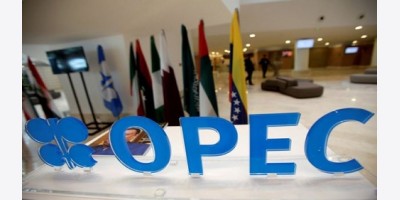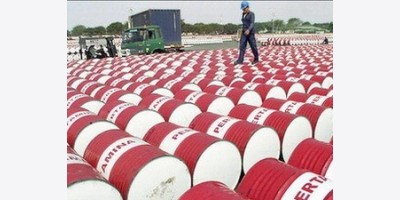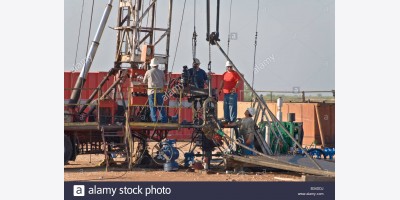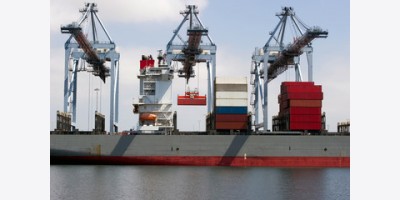By Bloomberg
Armed militias have blocked exports from several oil terminals in Libya, once North Africa’s biggest producer, since July. The structure of Brent crude futures, used to price at least half the world’s supplies, is also in their hands.
Rebels seeking self-rule for Libya’s eastern regions agreed to surrender two oil ports to the government on April 6. The two remaining export facilities they control will be handed over in two to four weeks, according to the country’s government. Speculation last week that such a deal was brewing flipped the front-month Brent contract in London into a discount to the second month for the first time since November. Whether this price structure, known as contango, is sustained depends on whether the deal in Libya holds.
The CHART OF THE DAY shows that the last extended period of contango in Brent ended with the uprising against former Libyan leader Muammar Qaddafi in early 2011, which removed about 1.6 million barrels a day of oil from the market. Recoveries in the country’s supplies have corresponded to moves back into contango. Conversely, the premium on immediate deliveries, called backwardation, has climbed when Libyan output has faltered.
“I can’t imagine that contango becoming more pronounced unless more barrels move into storage, and I can’t see storage building meaningfully unless Libyan barrels come back,” Francisco Blanch, head of commodities research at Bank of America Corp. in New York, said by phone on April 2.
Contango typically shows that supply in the short-term is exceeding demand. It allows oil traders to profit by stockpiling crude for later, while simultaneously selling longer-term futures contracts at a higher price, according to Petromatrix GmbH, a consultant in Zug, Switzerland. The structure can cause losses for financial investors seeking to transfer a futures position from one month to the next, because of the subsequent contract’s higher cost.
BNP Paribas SA and Commerzbank AG said Libyan exports would probably remain constrained despite the agreement to re-open the ports. Previous failed deals suggest “the odds are not favorable for a material resumption of Libyan oil,” BNP estimates. Even with an agreement in the east, protests in the country’s west will continue to impede production, according to Commerzbank.
To contact the reporter on this story: Grant Smith in London at gsmith52@bloomberg.net
To contact the editors responsible for this story: Alaric Nightingale at anightingal1@bloomberg.net; Tony Barrett at tbarrett4@bloomberg.net James Herron, Sharon Lindores























